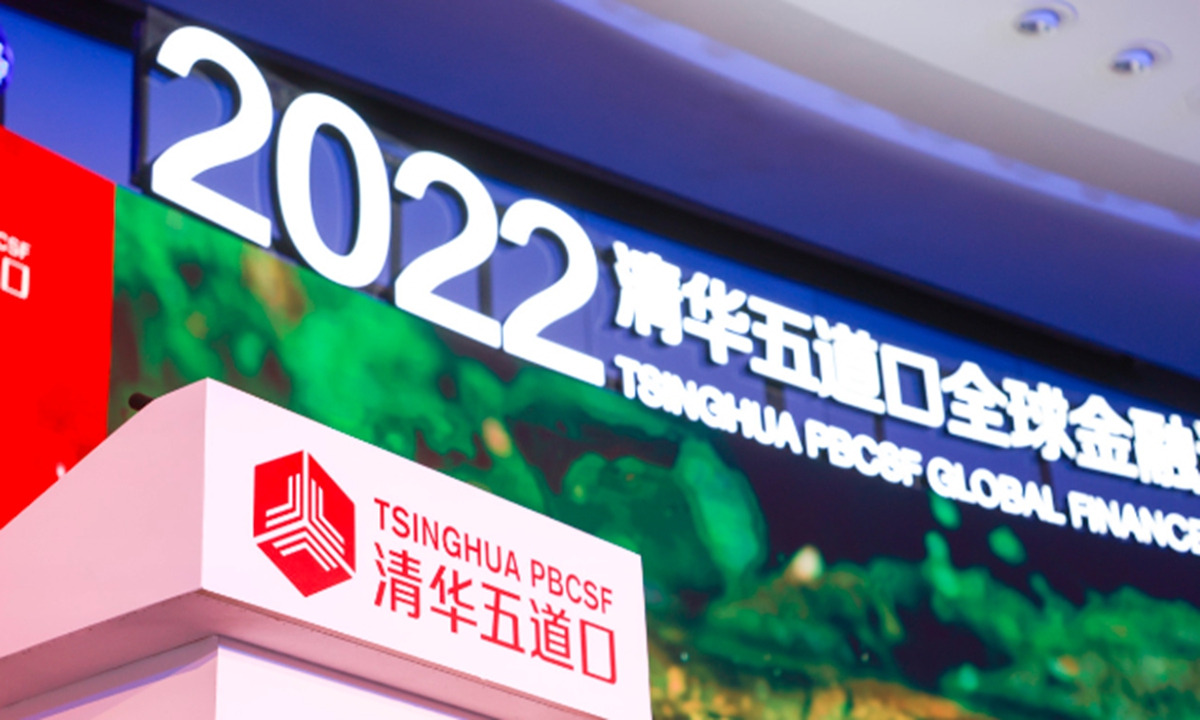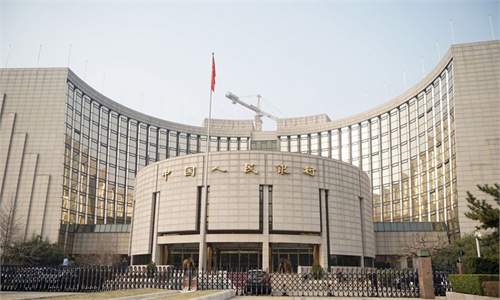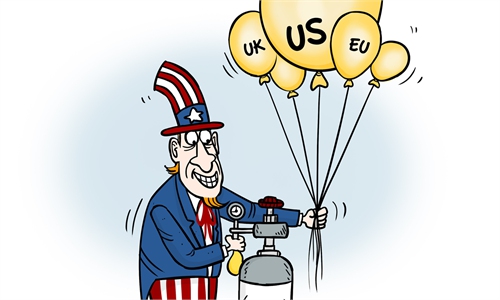China to continue opening-up to tackle rising uncertainties, support multilateralism

Photo: Courtesy of Tsinghua PBCSF Global Finance Forum
Amid rising challenges and risks posed by the COVID-19 pandemic, geopolitical tensions and US policies, China will continue to deepen reforms and open up its economy, while bolstering the domestic market to maintain sustainable growth and support global multilateralism, Chinese officials and economists said on Sunday.
Speaking at the 2022 Tsinghua PBCSF Global Finance Forum on Sunday, Xuan Changneng, deputy head of the State Administration of Foreign Exchange (SAFE), said that amid the intensifying global geopolitical situation, the sanctions launched by certain countries have had a new impact on the global economic and financial systems.
The sanctions are aggravating the adverse combination of high inflation, tight supply chains and food shortages around the world, said Xuan.
Against emerging signs of anti-globalization in recent years, some countries started to weaponize the economic and financial interdependence among economies to provoke economic and trade disputes, mounting pressure on international financial governance systems, represented by the G20.
People in developing countries are facing especially severe difficulties, not to mention the accelerating monetary policy adjustment in developed economies amid high inflation, which has further aggravated the debt repayment pressure of highly indebted countries, Xuan said.
In the short term, certain countries that initiate the sanctions may see benefits, but others will start to reflect on the potential risks and seek alternatives after the global economic and financial governance system takes a hit. Hence, those countries initiating the sanctions will in turn endure fallout in the long run, the SAFE deputy head said.
Nonetheless, China has been deeply integrated into the global economic and financial systems, playing a stabilizing and constructive role in the world, forum participants stressed.
Despite the complex international environment and emerging unilateralism, the nation will unswervingly deepen reform and take opening-up to a high level. It will continue to step up efforts to practice and safeguard real multilateralism, Xuan said.
China has been committed to opening up its financial market. As its financial market, capital market and product market play important roles in the world, China's opening-up, which facilitates the world in achieving an optimal allocation of resources, is particularly crucial under the current circumstances, Zhang Xiaoyan, associate dean of the Tsinghua University PBC School of Finance, told the Global Times on the sidelines of the forum.
The rollout of the guidelines for accelerating the setup of a unified national market came at a time when the economy is facing both intensified external and internal pressure, including the Russia-Ukraine conflict.
Under such circumstances, it is particularly crucial for China to shore up its economic and market arrangements; but a unified market does not mean a closed market, He Haifeng, chief economist of Guotai Junan Securities, told the Global Times on the sidelines of the forum.
On the one hand, potentially weakening external demand this year is temporary; while on the other hand, a unified domestic market still needs try to be consistent with, or converge to, the current international rules and standards, He said.
"When the economy is facing accelerating external pressure, more active fiscal policy will be needed; meanwhile, a prudent and flexible monetary policy will also need to be put in place to tackle risks in the financial area," the economist said.
One other external challenge is the China-US relationship, with trade and technology disputes weighing on the Chinese economy.
However, there are still positive factors and cooperative aspects with regard to the ties between the two largest economies, such as climate challenge faced by the whole world, He noted.
"From my perspective, the overall prospect of China-US regulatory cooperation remains promising," Zhang said.
As for companies, compliance is always a premise for them going public, no matter in the domestic or overseas markets. Recently, the US announced a provisional list of companies that face possible delisting.
It doesn't mean that these companies will necessarily be delisted, but companies do need to think thoroughly about their financing choices, according to Zhang.
If compliance with overseas regulations is too costly for certain companies, they have other financing avenues in both the Chinese mainland and Hong Kong. But if overseas financial markets are particularly important for certain firms, they need to be aware of the related costs, Zhang said.
The fact is that risks are rising throughout the global financial market, given the continuous spreading of COVID-19, the Russia-Ukraine conflict, the US' soaring inflation and weakened global trade.
Against this backdrop, individuals and businesses have to reassess their risk preferences and act accordingly. Only by keeping steady and firm steps, can one achieve a further goal, Zhang said.



